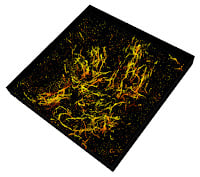What is PBA?

PBA (Pseudobulbar Affect) is a medical condition causing sudden, frequent, uncontrollable crying and/or laughing that doesn’t match how you feel. It can happen in people living with various types of dementia, such as Alzheimer’s, as well as other neurologic conditions.
Why treat PBA?
We express our emotions to connect with those around us and having PBA may affect that connection. Because PBA episodes are unpredictable and can happen at inappropriate times, including social situations, they can leave you feeling misunderstood and frustrated.
Reducing the number of PBA episodes you experience could help ensure that your crying and/or laughing more often matches how you feel. NUEDEXTA is the only treatment approved by the FDA to treat PBA.
Recognizing PBA
After experiencing certain neurologic conditions or a brain injury, watch for sudden, frequent, uncontrollable episodes of crying and/or laughing that are:
- Unpredictable: PBA episodes can happen at any time. These crying and/or laughing episodes might or might not seem to be triggered by what’s happening at the moment.
- Exaggerated: Crying and/or laughing during a PBA episode may be more intense or last longer than expected. For example, a person may cry excessively or for a long time after seeing a touching movie or laugh at a joke long after others have stopped.
- Mismatched: PBA episodes might appear inappropriate: They might not fit the situation or how the person is feeling. For example, a person might laugh at a funeral or cry when a friend shares good news.
PBA, Alzheimer’s and Dementia
Alzheimer’s disease and other dementias can make PBA especially hard to spot, since sudden episodes of crying and/or laughing can be mistaken for depression or other personality changes associated with dementia. In addition, people in long-term care settings, like nursing homes, may not have the benefit of a single caretaker who can watch their behavior every day to look for patterns.
About 9.6% of people in the US with Alzheimer’s disease or dementia may have PBA—over half a million people.
According to a survey of 499 patients with Alzheimer’s disease (or their caregivers), 9.6% may have PBA. Based on this data, 500,000 people living with Alzheimer’s in the United States may also have PBA.†
PBA is different from depression
PBA is not depression. But because sudden, frequent, uncontrollable episodes of crying are a key feature of PBA, people sometimes mistake PBA for depression. It’s important to understand that the two are separate conditions. Some people can have both PBA and depression. Both conditions are treatable and should be diagnosed by your doctor§ and managed separately.
| PBA | Depression | |
|---|---|---|
| Underlying Condition | Occurs in people with neurologic conditions such as Stroke, Alzheimer’s disease and Dementia, ALS (Lou Gehrig’s Disease), MS (Mutltiple Sclerosis), and Parkinson’s disease, or with brain injury* | May or may not have an underlying neurologic condition |
| Symptoms | Sudden, frequent crying, laughing, or both | May include crying, loss of interest or pleasure, sad mood, appetite changes, or sleeping too much or too little‡ |
| Episode Control | Crying and/or laughing episodes are uncontrollable | Crying, if present, may be voluntarily controlled |
| Expressions vs Feelings | Crying and/or laughing are exaggerated or do not match how you feel | Outward expression matches feelings or intent |
| Accompanying Thoughts | Episodes may not be related to a happy or depressed mood | Crying, if present, matches mood |
- *This is not a complete list. Other neurologic conditions may be associated with PBA.
- §Formal diagnosis of PBA or depression can only be made by a qualified healthcare professional (HCP). These are not all of the diagnostic features of depression or PBA. PBA occurs in the context of a neurologic condition/injury affecting the brain and is not explained by other causes such as medication use.
- ‡Diagnosis can only be made by a qualified healthcare professional. These are not all the symptoms of depression.
What to expect with NUEDEXTA

When you start NUEDEXTA, you might experience fewer PBA episodes after the first week. You should expect to see your best results by about 90 days.*
In a 12-week clinical trial, patients had an average of 44% fewer episodes after the first week of taking NUEDEXTA, compared to 19% on placebo* and an average of 82% fewer episodes after 12 weeks, compared to 45% on placebo.*
During the final two weeks of the study, 51% of patients taking NUEDEXTA were completely episode-free, compared to 29% on placebo.*
*Pioro EP, Brooks BR, Cummings J, et al. Dextromethorphan plus ultra low-dose quinidine reduces pseudobulbar affect. Ann Neurol. 2010;68:693-702.
SOURCE:
- Neudexta Website: Otsuka America Pharmaceutical, Inc.
NUEDEXTA® is a registered trademark of Avanir Pharmaceuticals, Inc. and used under license by Otsuka America Pharmaceutical, Inc.











It would have been interesting to read how this medication works